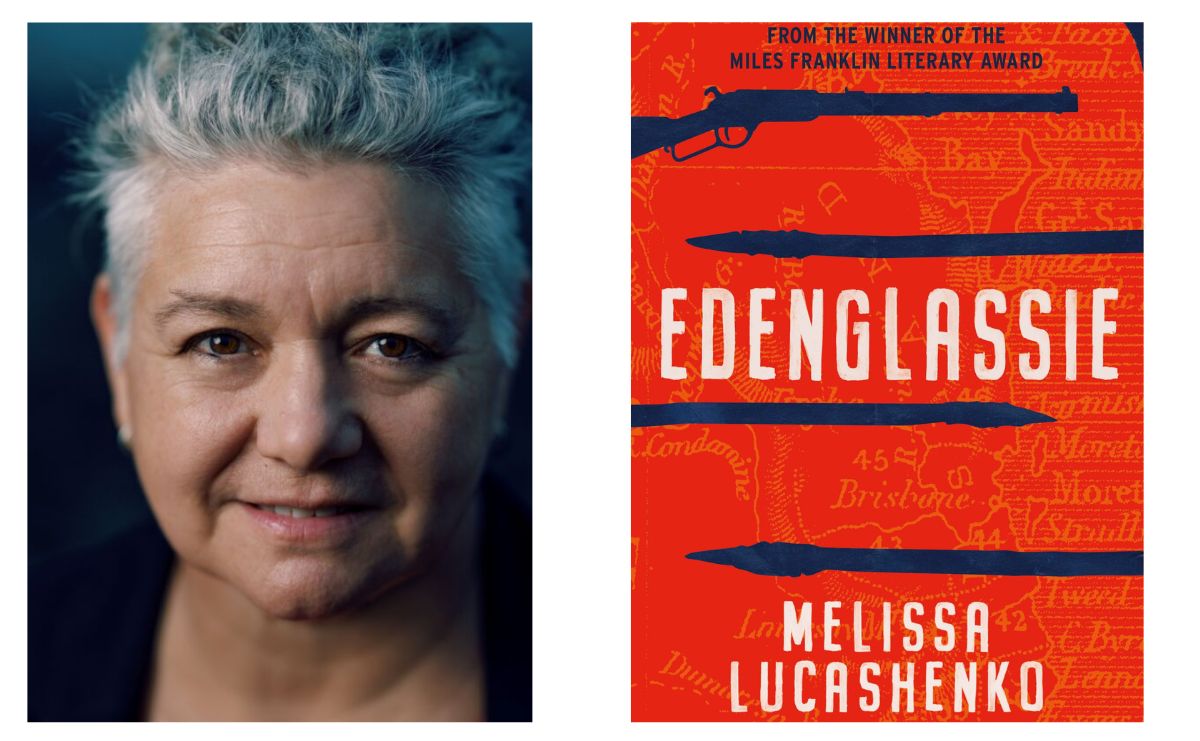Vibrant and engaging, the latest novel from Melissa Lucashenko, Edenglassie, showcases again why the author was awarded the Miles Franklin in 2019.
Splitting its narrative between the mid-1800s and 2024, the novel loosely centres on the young Mulanyin in the early colony and Eddie Blanket as she recovers in hospital after a fall. Though they live vastly different lives, Eddie as a centenarian Elder and Mulanyin as a young man 200 years in Eddie’s past, both are similarly subject to the violence of the colony as it fluctuates rapidly between self-righteous paternalism and intense scrutiny.
Each time period also follows the burgeoning of a relationship. First between Mulanyin and Nita and then between Eddie’s doctor and her granddaughter, with each situation impacted and mitigated by the era they’re in.
Lucashenko writes bright, unambiguous sentences, which lend the novel an ease that carries the reader through without resistance. The line level structure operates in opposition to the prevailing trend for more character and place-centric novels; the focus of her sentences, their unwillingness to meander, would seem at place in a novel more concerned with its narrative progression. But in Edenglassie each sentence works to involve the reader, while eschewing the idea that a novel about characters and social interplay must be relegated to solely interior monologue.
All the characters benefit from Lucashenko’s thoroughness, though an imbalance comes about from the time spent in the 1800s compared to 2024. A much larger chunk of the novel is spent in the former, following Mulanyin and his relationships, than is spent with Eddie and hers. In particular, the relationship between Eddie’s doctor, Johnny, and her granddaughter Winona, while believable and intricate, feels at times like a clipped version of the full relationship. Especially in contrast to the relationship between Mulanyin and Nita, which feels more thorough in its build-up and its pay-off.
The novel also benefits from Lucashenko’s research, what she calls the ‘historical veracity’ of the novel. The 1800s feel vibrant and alive, and it is a shock to read the author’s note at the end and be reminded of the fictitious elements of the historical narrative. Further, the portrayal of a more realistic early colonial period serves to dismantle the self-serving colonial narratives that have been constructed around the period.
In working against colonial myths, Edenglassie also pushes against the idea that the novel functions solely as a vehicle for developing empathy. Edenglassie reminds, both in its form and content, that stories have more importance than just a one-to-one process of identification and self-improvement – that, even when fictional, stories play a crucial role in shaping our understanding of place and history.
With Edenglassie, Lucashenko further cements herself as one of the most interesting and important contemporary authors. In a literary landscape that often seems to lean towards stylistic hegemony, Lucashenko seems more intent on suiting her structure to the narrative she’s trying to tell, rather than following prevailing trends.
Read: Book review: The Lucky Ones, Melinda Ham
Easy to read and consistently rewarding, Edenglassie is a more than worthwhile pick-up, especially if you’re looking for something different in the literary landscape.
Edenglassie, Melissa Lucashenko
Publisher: UQP
ISBN: 9780702266126
Format: Paperback
Pages: 320 pp
Publication date: 3 October 2023
RRP: $32.99






